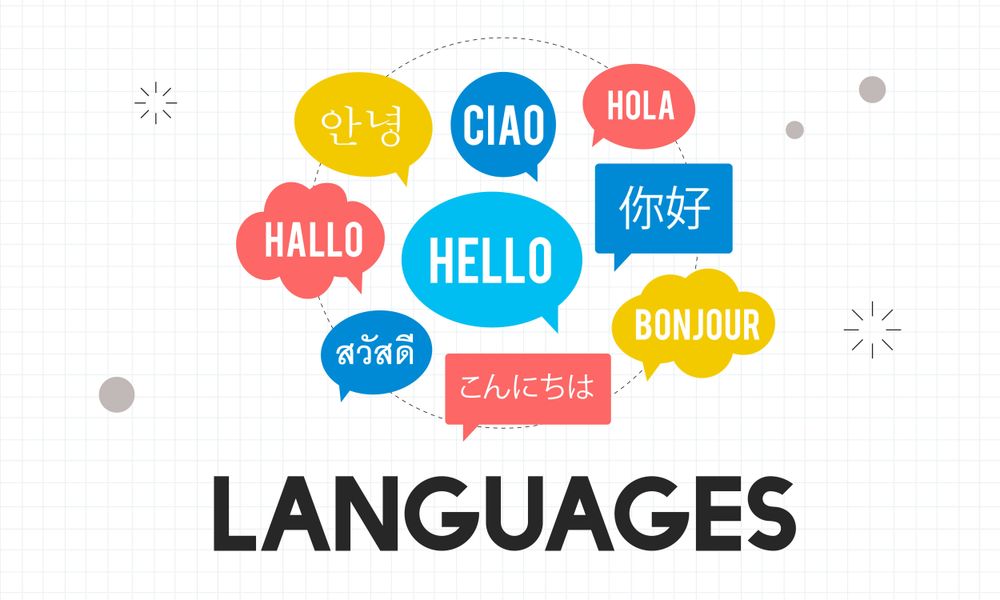Artificial intelligence (AI) is no longer just a buzzword; it is a transformative force reshaping industries, driving innovation, and altering the way we live and work. As we stand on the brink of this technological revolution, understanding it becomes not just an option, but a necessity for those who wish to stay relevant in an increasingly automated world.

In this definitive guide for beginners, we’ll delve into the vast world of AI and provide you with a clear and structured approach to learning using the best AI resources available. Whether you are a student, a professional seeking to upskill, or simply an enthusiast with a passion for technology, this will equip you with the knowledge and tools you need to get started.
By the end, you will have a solid understanding of AI and be well on your way to mastering this cutting-edge field. So, let’s embark on this exciting journey together, unlocking the secrets of AI and positioning yourself at the forefront of technological innovation.
Beginner’s Guide: How to Learn Artificial Intelligence Using AI Resources
This guide is structured to provide you with a comprehensive roadmap to learning artificial intelligence using AI resources. Here's a breakdown of what each section covers:
- Introduction: An overview of the importance of learning AI and the structure of the guide.
- Why Learn Artificial Intelligence: An exploration of the growing demand for AI skills, career opportunities in the field, and the importance of staying ahead of the curve.
- Steps in Setting Up a Learning Plan: Practical advice on identifying your goals, creating a study schedule, choosing the right resources, and tracking your progress.
- Understanding the Basics of Artificial Intelligence: An introduction to fundamental AI concepts and their applications.
- Beginner-Friendly Resources to Start Learning AI: A curated list of beginner-friendly resources to kickstart your AI learning journey.
- Overcoming Common Challenges in Learning AI: Strategies for overcoming common challenges to ensure a successful learning experience.
- Conclusion: A recap of key points covered in the guide and encouragement for embarking on the AI learning journey.
Throughout this guide, you'll find actionable insights, practical tips, and curated recommendations to guide you through every step of your AI learning journey. Simply follow the roadmap outlined in each section, adapt it to your learning style and pace, and let your curiosity and dedication drive your progress.
Why Learn Artificial Intelligence?
Understanding the importance of learning AI is essential for anyone looking to thrive in the digital age. Here's why diving into the world of artificial intelligence is more crucial now than ever before:

- Growing Demand for AI Skills
In recent years, there has been a significant surge in the demand for AI-related skills across various industries. This trend is reflected in the increasing number of job postings for AI roles, such as data scientists and machine learning engineer, and the growing investments in AI technology by businesses worldwide. According to statistics, the AI job market is projected to continue expanding, with millions of new openings expected in the coming years.
- Benefits of Learning AI
The benefits of acquiring AI skills extend beyond career opportunities to personal growth and fulfillment. It opens doors to lucrative career paths in high-demand fields such as data science, machine learning engineering, and AI research. Additionally, professionals with AI expertise are highly sought after by employers and command competitive salaries, making it an attractive career choice for ambitious individuals. Finally, mastering AI offers the satisfaction of contributing to cutting-edge technology and driving innovation that has the potential to positively impact society on a global scale.
- Impact of AI on Society
The rise of artificial intelligence is reshaping the fabric of society and influencing nearly every aspect of human life. From healthcare and education to transportation and entertainment, AI is revolutionizing how we live, work, and interact with the world around us. However, with great power comes great responsibility, and the widespread adoption of AI raises important ethical and societal considerations. Issues such as data privacy, algorithmic bias, and the ethical implications of AI-driven decision-making are increasingly coming into focus, underscoring the need for thoughtful regulation and ethical guidelines to ensure that AI technologies are developed and deployed responsibly.
The growing demand for AI skills, the transformative impact of AI, and the myriad benefits of mastering AI underscore the importance of learning artificial intelligence in today's digital landscape. By acquiring AI expertise, individuals can position themselves at the forefront of technological innovation, seize lucrative career opportunities, and contribute to shaping a future powered by intelligent machines.
3 Steps in Setting Up a Learning Plan
Embarking on the journey to learn artificial intelligence requires careful planning and strategic execution. Here are the key steps to setting up an effective learning plan:
1. Identifying Your Goals
Begin by clarifying your objectives and motivations for learning AI. Are you looking to enhance your skill set for personal enrichment, or are you seeking to advance your career in AI-related fields? Understanding your goals will help you tailor your learning journey to align with your aspirations. After that, break down your overarching goal of learning AI into smaller, achievable milestones. Set both short-term goals, such as mastering specific AI techniques or completing a course, and long-term goals, such as obtaining a certification or transitioning into an AI-related career.

2. Creating a Study Schedule
Balancing AI learning with other commitments can be challenging, but with proper time management, it's achievable. Identify pockets of time in your schedule—whether it's early mornings, evenings, or weekends—and allocate them to AI learning. Consistency is key, so establish a regular study routine that fits seamlessly into your lifestyle. The amount of time required to learn AI varies depending on individual circumstances, but dedicating a minimum of 5-10 hours per week to study and practice is recommended for effective learning progress. Adjust your study schedule based on your availability and learning pace, ensuring that you strike a balance between immersion and avoiding burnout.
3. Choosing the Right Resources
With a plethora of AI resources available—from online courses and tutorials to books and forums—choosing the right ones can be overwhelming. Consider factors such as your preferred learning style, the depth of content you're seeking, and your specific learning objectives when selecting resources. Opt for reputable platforms and materials that align with your goals and cater to your learning preferences. For a comprehensive learning experience, embrace a multi-faceted approach to learning AI by combining different types of resources. Supplement structured online courses with practical exercises, real-world projects, and interactive discussions in AI communities. Diversifying your learning sources will deepen your understanding and expose you to diverse perspectives within the AI field.
By following these steps and crafting a well-thought-out learning plan, you'll set yourself up for success on your AI learning journey. Remember to stay focused, remain adaptable, and celebrate your progress as you navigate the exciting world of artificial intelligence.
Understanding the Basics of Artificial Intelligence
To embark on your journey into the world of artificial intelligence, it's essential to grasp its foundational concepts, which are:
- Machine Learning: Machine learning focuses on enabling computers to learn from data without being explicitly programmed. It involves developing machine learning algorithms that can identify patterns and make predictions or decisions based on past experiences.
- Deep Learning: Deep learning involves training artificial neural networks with multiple layers to perform complex tasks. Their algorithms are particularly effective for tasks such as image recognition, speech recognition, and natural language processing.
- Neural Networks: Neural networks are the building blocks of deep learning algorithms and are computational models inspired by the structure and function of the human brain. They consist of interconnected nodes, or neurons, organized into layers. Each neuron processes input data and transmits signals to neurons in the next layer.
- Natural Language Processing (NLP): Natural language processing focuses on enabling computers to understand, interpret, and generate human language. NLP algorithms are used in virtual assistants like Siri and Alexa to recognize speech, answer questions, and perform tasks based on spoken commands. Additionally, NLP techniques are employed in sentiment analysis, language translation, and text summarization.
By understanding the concepts of machine learning, deep learning, neural networks, and NLP, you'll gain valuable insights into the principles and innovations that drive this dynamic field forward. With this as your foundation, you'll be well-equipped to explore more advanced topics and applications in the fascinating world of artificial intelligence.
4 Beginner-Friendly Resources to Start Learning AI
Having the right resources during your journey to learning artificial intelligence can help you navigate the complexities of AI. Here are some beginner-friendly resources to begin your AI learning journey:
- Online Courses and Tutorials
Several online learning platforms offer comprehensive AI courses that are designed for beginners but taught by leading experts in the field. These courses cover a wide range of AI topics, from introductory concepts to advanced techniques. For beginners, courses like "Machine Learning" by Andrew Ng on Coursera provide an excellent introduction to the fundamentals of AI and machine learning.

2. Books and Publications
Books are a valuable resource for diving deeper into AI concepts and principles. "Artificial Intelligence: A Guide for Thinking Humans" by Melanie Mitchell offers an accessible introduction to AI, exploring its history, current applications, and potential future developments. Other recommended books for AI beginners include "Python Machine Learning" by Sebastian Raschka and "Deep Learning for Computer Vision" by Rajalingappaa Shanmugamani. These books cover essential topics in AI and provide hands-on tutorials and practical examples to reinforce your learning.
3. AI Communities and Forums
Engaging with peers and experts in AI communities and forums is an invaluable way to learn from others and stay updated with the latest trends and developments in the field. Platforms like Reddit, Stack Overflow, and Kaggle offer opportunities to ask questions, share knowledge, and collaborate on AI projects. By participating in AI communities and forums, you can gain insights from experienced practitioners, seek advice on challenging problems, and build a network of like-minded individuals passionate about AI. Collaborating with others can accelerate your learning process and provide valuable support and encouragement along the way.
4. AI Tools and Software
Familiarizing yourself with popular AI tools and software is essential for hands-on learning and experimentation. Beginner-friendly tutorials and documentation are available for these tools, providing step-by-step guidance on how to get started. There are also online resources that offer introductory tutorials, sample code, and practical examples. These can help effectively use these tools to create AI algorithms, machine learning models, and AI applications.
By leveraging these beginner-friendly resources, you can lay a strong foundation for your AI learning journey and gain the knowledge and skills needed to tackle more advanced concepts and projects in the future. Whether you prefer structured online courses, immersive reading materials, interactive communities, or hands-on experimentation with AI tools, there's a wealth of resources available to support your learning goals.
Overcoming 5 Common Challenges in AI Learning
While learning is a rewarding journey, it comes with its fair share of challenges. Here are some common hurdles beginners may encounter and strategies to overcome them:
- Complexity of Concepts: You may feel overwhelmed by the sheer breadth of knowledge required to master AI. To overcome this challenge, break down complex concepts into smaller, more digestible chunks. Focus on understanding one concept at a time, and gradually build upon your knowledge as you progress.
- Finding Reliable Resources: With the abundance of AI resources available online, it may be a struggle to discern which ones are reputable and reliable. To mitigate this challenge, seek out recommendations from trusted sources and look for resources with positive reviews and endorsements from experts in the field.
- Maintaining Motivation: Like with any educational journey, learning AI requires dedication and perseverance. To stay motivated, set realistic goals, celebrate small victories along the way, and find ways to make learning AI enjoyable. Remember that progress takes time, and every step forward brings you closer to your goals.
- Overcoming Imposter Syndrome: Imposter syndrome, or feeling like you don't belong or aren't good enough in the field of AI, is common among beginners. Remember that everyone starts somewhere, and it's okay to make mistakes and ask questions. It would also help to surround yourself with a support system that can offer encouragement and guidance.
- Dealing with Technical Challenges: In the process developing your own AI project, you are sure to encounter technical challenges, such as debugging code or troubleshooting errors. Embrace these challenges as opportunities for growth and learning. If you need help overcoming them, try seeking out online tutorials, documentation, and forums.
By recognizing and addressing these common challenges head-on, you can navigate the learning curve of AI with confidence and resilience. With determination, patience, and the right support network, mastering artificial intelligence is well within reach.
Learn About AI with Confidence!

As you embark on your journey into the realm of artificial intelligence, remember that the path ahead may be challenging, but the rewards are immense. By leveraging the curated AI resources and strategies outlined in this guide, you'll be equipped to overcome common hurdles and navigate the complexities of AI with confidence. Whether you're driven by career aspirations, personal curiosity, or a desire to contribute to cutting-edge technology, embracing the opportunities presented by AI learning will undoubtedly enrich your life and open doors to exciting possibilities. So, seize the opportunity, dive into the world of artificial intelligence, and embark on a journey of discovery that promises to shape the future of technology and humanity alike.





